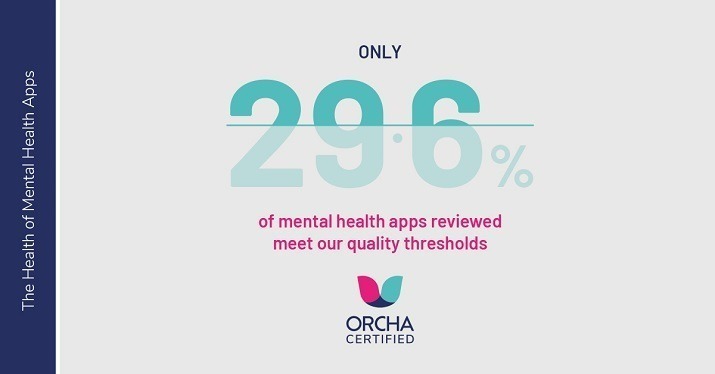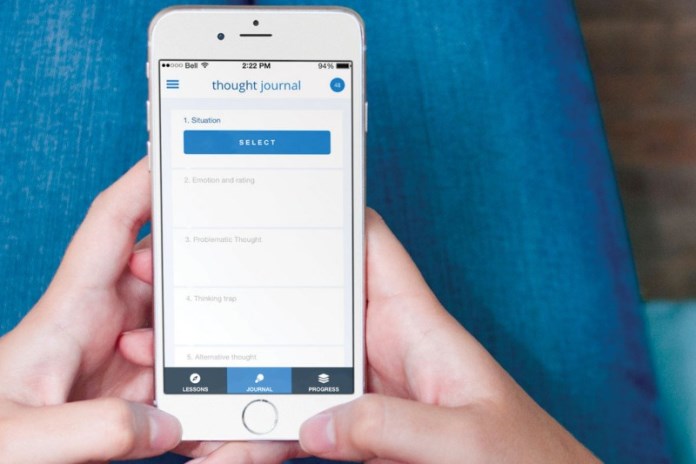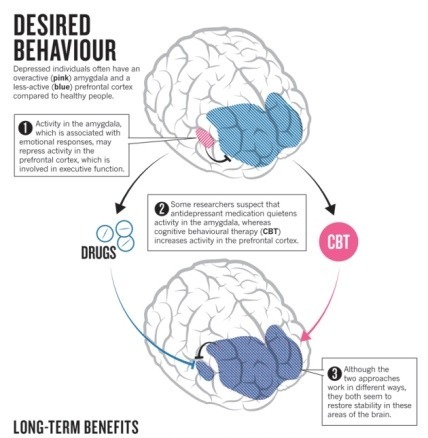Posts Tagged ‘cognitive behavioural therapy’
Study: Self-guided sleep app Sleepio, combined with standard care for depression and anxiety, delivers better outcomes than standard care alone
Study backs benefit of insomnia DTx Sleepio on mental health (pharmaphorum): The study – published in the journal Behaviour Research and Therapy – tested the Sleepio app developed by digital health specialist Big Health as an add-on to standard NHS care for anxiety and depression under the improving access to psychological therapies (IAPT) policy. Patients…
Read MoreThe landscape of digital mental health apps: huge unmet needs, quality concerns, app stores asked to ensure transparency
Addressing the mental health crisis (Pharma Field): Each day we find out more about the mental health effects of the pandemic. Early on, the Office for National Statistics found that one in five Britons reported symptoms of depression, compared with one in 10 before. And, according to a recent study led by the University of Nottingham…
Read MoreRepetitive negative thinking may increase (or perhaps be caused by) cognitive decline and Alzheimer’s pathology
Dementia: negative thinking linked with more rapid cognitive decline, study indicates Dementia affects an estimated 54 million people worldwide. There no cure, but reports indicate that approximately a third of dementia cases may be preventable, which is why many researchers have begun to focus on identifying risk factors. This would allow for better personalised interventions…
Read MoreStudy: To treat depression, therapy alone works better than therapy combined with antidepressants
___ Should Combined CBT, Pharmacotherapy Be Reconsidered in MDD? (Psychiatry Advisor): “Cognitive behavioral therapy (CBT) alone proved to be superior to the combination of psychotherapy and antidepressant medication in the treatment of major depressive disorder (MDD) in a systematic review and meta-analysis published in Psychological Medicine. Antidepressant medication is associated with side effects and withdrawal…
Read MoreMobile cognitive therapies gain traction as first-line mental health intervention
Mental health apps let you access therapy from your smartphone (New Scientist): “Lie down anywhere that suits: the world is now your therapist’s couch. A wide range of apps now deliver mental-health care straight to your smartphone. With PTSD Coach, users can discreetly screen themselves and learn more about the disorder. Moodnotes keeps track of
Read MoreUpdate: Should Cognitive Behavioural Therapy (not antidepressant drugs) be the first-line treatment for depression?
— Time for SharpBrains’ November e‑newsletter, featuring a wealth of brain health insights, neuroscience and psychology research reports…and some fun brain teasers. Enjoy! New thinking: Should Cognitive Behavioural Therapy (not antidepressant drugs) be the first-line treatment for depression? Access the slides and insights from 40+ speakers @ 2014 SharpBrains Virtual Summit Debate: Is there a link between ADHD and…
Read More





